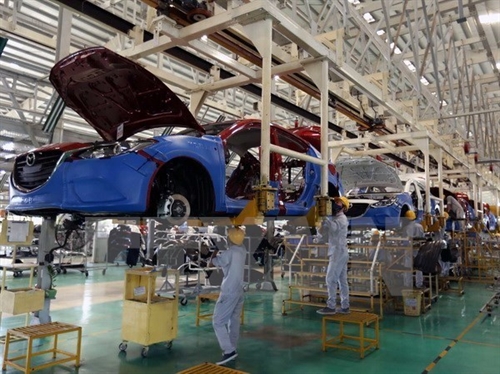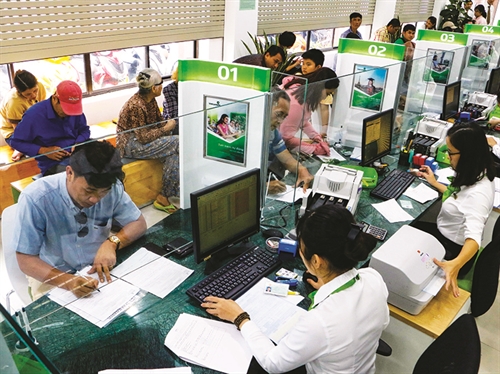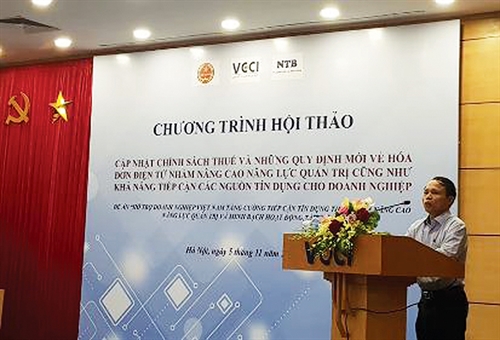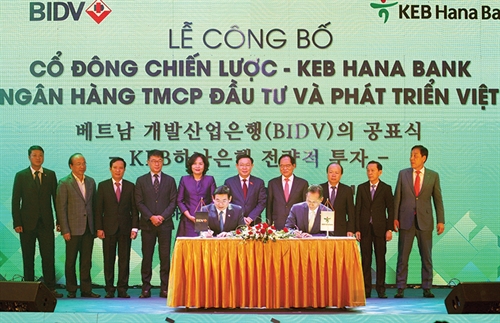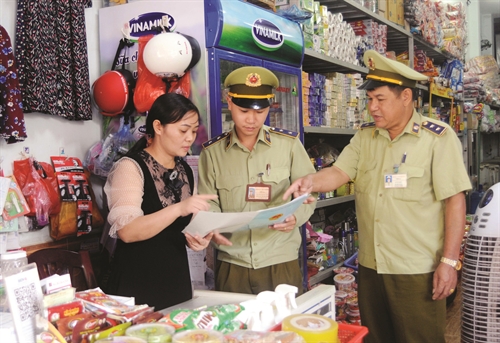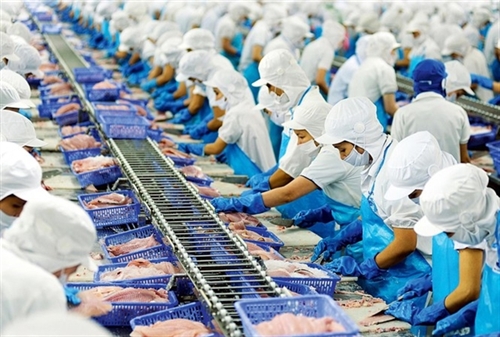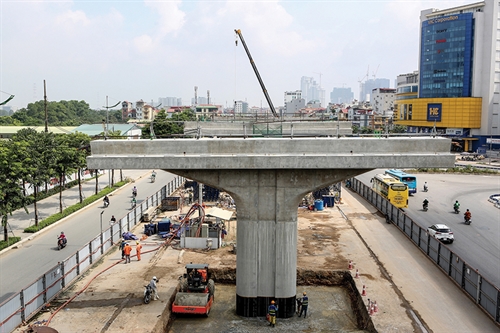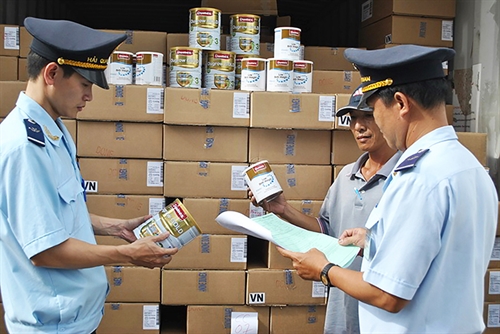In the coming time, Vietnam’s investment and business environment will be substantially improved in a bid to further raise the country’s competitiveness.
Such is highlighted in Government Resolution 02 inked by Prime Minister Nguyen Xuan Phuc on the first day of 2020. Worthy of note, this is the seventh year in a row the Government adopts a resolution on business environment and enterprise development. Like its previous versions - Resolutions 19 of 2014 thru 2018 and Resolution 02 of 2019, the newly issued resolution focuses on solutions to simplify investment and business conditions, raise the country’s rankings in international indexes, and lessen requirements on specialized inspection.
Simplifying investment and business conditions
In a talk with Dien dan doanh nghiep (Business Forum) newspaper, economist Phan Duc Hieu, Vice Director of the Central Institute for Economic Management (CIEM), said the Resolution conveys the Government’s determination to reform business and investment regulations in a substantial manner.
Specifically, the resolution requires ministries and sectors to not only work out plans on reducing business conditions in the fields under their management but also update and publicize administrative procedures for grant of certificates of satisfaction of business conditions, which have been simplified over the recent years, together with a comparison table of business conditions before and after they are simplified.
“The Government is using enterprises’ actual experience as a tool to evaluate authorities’ reform efforts rather than merely looking at results shown in their reports. This requirement will probably exert great pressure on ministries and sectors,” Hieu commented, adding this is the first time authorities have been required to do such job.
According to Hieu, clear analysis and comparison of conditions for doing business in a certain sector before and after they are pruned will enable enterprises currently operating or wishing to invest in such sector to project exactly changes in their business costs, including also compliance costs and opportunity costs. In this way, reforms that really help and those that do not actually work will be revealed.
“This is the right time for ministries and sectors to change their methods of or even ways of thinking about pruning business conditions and specialized inspection procedures. Though it has been regarded as separate tasks of each agency, in order to meet the Government’s requirements, ministries and sectors will have to coordinate in devising processes that are most convenient and require lowest compliance costs. This will help change thoughts about the making of policies concerning production and business activities,” Hieu expected.
The resolution also requires ministries and sectors to take part in drafting legal texts prescribing simpler business conditions. Explaining the reason why such a move is necessary, Hieu cited a research by CIEM, saying that there are some 38 laws containing regulations on business conditions which are considered barriers to enterprises. In a report reviewing the implementation of Resolution 02 of 2019 released last December, the Vietnam Chamber of Commerce and Industry (VCCI) also said that there remain unreasonable, intransparent and infeasible business conditions that need to be pruned. However, it is not easy to get rid of these conditions because they are prescribed by laws and therefore can only be abolished when these laws are revised.
Apart from law revision, the quality of appraisal of business conditions proposed in draft regulations needs to be increased so as to guarantee their consistency with the Investment Law, the resolution states.
Additionally, to ensure that reform efforts will bring about benefits to enterprises, the Government requests local administrations to properly implement new regulations on investment and business conditions, refrain from imposing additional conditions in any forms and handle public employees who fail to comply with new rules.
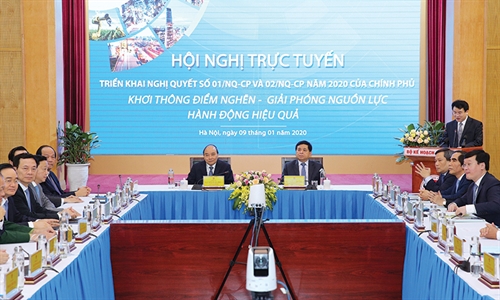 |
| A video conference on improving business environment and competitiveness on January 9 in Hanoi with the participation of Prime Minister Nguyen Xuan Phuc__Photo: Duong Giang/VNA |
Raising the country’s rankings in international indexes
As specified in the resolution, Vietnam expects to leap 10 ranking spots in the World Bank’s Ease of Doing Business Index, five spots in the World Economic Forum’s Global Competitiveness Index 4.0, three or four spots in the World Intellectual Property Organization’s Global Innovation Index, and between 10 and 15 spots in the United Nations’ E-Government Development Index.
To realize the expectations, the resolution puts forward several solutions, focusing on such fields as business startup, construction licensing, credit access, and property registration.
With a view to creating a more favorable environment for those who wish to start a business, the Government asks the Ministry of Finance (MOF) to propose right in the first quarter of this year amendments to Decree 139 of 2016 on license fee, extending the deadline for annual declaration and payment of license fee to January 30 of the subsequent year. The MoF is also required to keep a close eye on the implementation of invoicing regulations, promoting the use of e-invoices while ensuring prompt response to enterprises’ orders for printed invoices or applications for permission for self-printing of invoices.
The Ministry of Labor, Invalids and Social Affairs is assigned to take the main charge of building an information system for online declaration and submission of labor-related documentation connected to the national information system for business registration.
The Ministry of Planning and Investment is tasked to finalize the draft revised Law on Enterprises along the line of abolishing or simplifying dispensable or unreasonable procedures so as to reduce the time and cost for market access.
The VCCI’s report revealed that enterprise establishment registration continued to be among procedures mostly applauded by businesses. In 2017, the ratio of enterprises carrying out establishment registration procedures online, by post or at public administration offices was just 12.5 percent but in 2018, this figure increased to 17.4 percent. On the contrary, in 2017, 60 percent of questioned enterprises said they were content with application of information technology in the domain of business registration but in 2018, this rate dropped to 36 percent. This is a matter that should be taken into careful consideration especially when the Government is attempting to promote the application of information technology in performance of administrative procedures.
Construction licensing is another matter of concern. According to results of the 2018 Provincial Competitiveness Index (PCI) survey, Hanoi and Ho Chi Minh City, the two cities with the highest number of construction works in the country, were evaluated as showing the least improvement in administrative procedures for grant of construction permits. Although time limits for completing these procedures are clearly provided but since they are all counted from the time of receipt of a valid dossier, in most cases the persons concerned can hardly know exactly when they can go through these procedures. Statistics show that in order to undergo a contruction licensing-related procedure, on average an applicant has to submit a dossier thrice. It is not to mention the fact that the bigger the work is, the longer it takes to complete the procedure.
To address the situation, the resolution requests the Ministry of Construction (MOC) to scrutinize the construction licensing process and reduce the time limit for granting a construction permit or conducting construction inspection and examination to no more than 50 days. The MOC will also have to study the application of risk management methods in construction investment so as to reduce inspections as well as document approval requirements.
The 2018 PCI survey also revealed that a majority of businesses consider getting bank loans the second hardest thing they are encountering, just behind seeking customers and even above seeking labor, partners and suppliers and facing changes in markets and policies. They pointed out that the biggest problem lies in the requirement compelling businesses to have collateral in order to take bank loans.
In the time to come, access to credit facilities will become easier. Under Resolution 02, the State Bank of Vietnam will continue taking measures to maintain the depth of credit information while directing credit institutions to create favorable conditions for people and enterprises to get access to credit in an equitable and transparent manner.
Moreover, the decrees guiding the 2015 Civil Code’s provisions regarding secured transactions will be soon revised, possibly right in this year, toward simplifying documentary requirements on, while facilitating online registration of, secured transactions.
Another field that needs to be improved in the coming time is property registration. Right in the second quarter of this year, the Ministry of Natural Resources and Environment will, in coordination with the MOF and other relevant agencies, guide localities to take drastic measures to reduce the time for completing procedures for grant of certificates of ownership of works attached to land, transfer of house ownership, and registration of land use rights.
According to the VCCI’s report, Vietnam has seen almost no improvement in the property registration procedure index over the past few years and the biggest problem confronting the country is poor-quality land administration. The rate of enterprises facing difficulties in seeking land-related information and data had increased from 28.6 percent in 2017 to 30.6 percent in 2018.
This situation can be attributed to several causes. To date, Vietnam has not yet completed the digitalization of land-related dossiers and master plans and still fails to formulate an independent mechanism for lodging land-related complaints to land registration offices and cadastral mapping agencies. People are not yet provided with access to cadastral maps of land plots while the time for publicizing cadastral maps and their updates remains unclear. The rates of land plots shown in cadastral maps and with land use rights certificates remain low. The settlement of land-related disputes at court often takes a long time but there is no mechanism for out-of-court compensation for damage caused by inaccurate information provided by land registration offices. In addition, the country still lacks a national database that can help authenticate documents presented by administrations.
Reducing specialized inspection
According to results of a survey conducted last year by VCCI to measure enterprises’ satisfaction with administrative procedures for imports and exports, goods quality inspection-licensing is the most frequent procedure, established majorly by the Ministry of Industry and Trade, followed by the Ministry of Agriculture and Rural Development, Ministry of Science and Technology and Ministry of Health. It is worth mentioning that import-export is among top three sectors showing the least improvement with only 52 percent of enterprises noticing positive changes.
To cope with the situation, the Government, in its regular meeting last October, underlined the determination to reform specialized inspection procedures. It even called out the names of commodity items for which specialized inspection procedures should be reformed and pointed out the direction for such reform. With Resolution 02, the Government took a step forward, requiring every ministry or sector to review and cut down the list of commodity items subject to specialized inspection under its management by at least half and publish the new list, together with a comparison table of commodity items before and after the inspection abolishment or reduction, right in the first quarter of this year. Besides, concerned ministries will be organizationally restructured so that there will be only one focal point in charge of specialized inspection for each commodity item.
The resolution also requires comprehensive reform of specialized management and inspection and connection to the national single-window mechanism and ASEAN single-window mechanism. By the end of this year, risk management methods will be applied on the basis of evaluating enterprises’ degree of compliance and degree of risks of goods, shifting from inspection upon customs clearance of goods to supervision on the domestic market, publicizing the list of goods subject to specialized inspection, together with their HS codes, applicable methods of specialized inspection, and expenses payable by enterprises, and provide level-4 online public services.
According to Hieu, the Government’s reform plan requires the coordination among many agencies. “All should move in the same direction,” he said, adding that creating a good business environment is the most practical action to side with businesses.-
